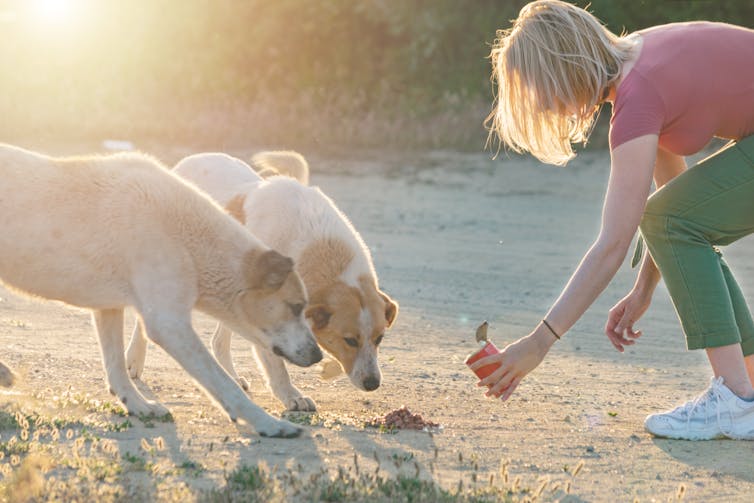Emotional Responses to News Coverage
"The negative exposure we have in the media makes u s think that the world is more dangerous than it really is. Seeing others' kindness helps us maintain this belief that the world isn't that bad.""There's something special about kindness in particular. Following news stories that feature others' kindness has a real set of emotional and cognitive benefits for people. It serves as a kind of reset button that allows us to have this faith in humanity.""[When humans witness an act of kindness], it gives us a special feeling called elevation; [a] warm, fuzzy feeling in the chest, an immediate rush of wanting to be a better person.""We're inspired to be kind by seeing others' kindness."Kathryn Buchanan, psychology professor, University of Essex"[Troubling stories are likely to lead to] passive despair [or hopelessness].""That's completely contrary to what most people think, which is that you scare people into action.""[On the flip side], when you see other people behaving well, that gives rise to more hope in human nature, and you yourself will behave more ethically."Denise Baden, professor of sustainable business, University of Southampton
Professor Buchanan and her colleague, Gillian Sandstrom began a study in 2017 recently published in PLOS One, that found being exposed to news containing an element of kindness is capable of easing the sobering effects of reading news stories that tend to be distressing. The two researchers split 1,800 study participants into several groups, each of which were given news clips or articles relating to a recent U.K.-based terrorist attack or a similarly-upsetting catastrophic event.
Some groups were exposed singularly to upsetting news, others were subsequently shown stories of a heroic act or one of a more lighthearted subject matter. The group strictly given unsettling news reported increases in negative emotions and decreases in feelings of positivity. They also spoke of feeling more pessimistic about humanity and society in general. Participants on the other hand, shown stories of kindness as well as the shocking stories, reported less negative emotions, along with increases of emotional positivity; they came away with a more optimistic world view.
Two scales were in use by the participants -- 1 meant very slightly or not at all, up to 5 representing extremely -- in assessing the level of negativity and positivity they experienced before and after being exposed to news content. Typically, a participant exposed to only upsetting news rose from a 1.32 to 2.48 on the negativity scale, their positivity level plunging from a 2.59 to a 1.91. Seeing distressing news but also given a kindness story saw the scales move from a 1.32 to 1.77 on the negativity scale, with a 2.89 to a 3.10 on the positivity scale.
Uplifting news, it was demonstrated, can provide an emotional buffer against distressing news. The importance of being informed of current events, including those with a tendency to make one upset is important, the researchers concluded, but a balanced news coverage would mitigate "mean-world syndrome", which is when -- after long-term exposure to upsetting news -- people begin to view the world through a darker prism than reality.
Feelings of cynicism and hopelessness can be lifted on being exposed to positive news, replaced with optimism and action, encouraging people to feel better, and sometimes commit to doing better themselves. Similar conclusions have been yielded through other studies. Dr. Baden, at University of Southampton, researched adverse effects of negative news dominating the media, and benefits of constructive and solution-based journalism. Published in 2019, her research was titled "The Impact of constructive news on affective and behavioural responses".
 |
Labels: Impact of Bad News, Kindness Quotient, Psychology, Reassurance of Good News, Research

0 Comments:
Post a Comment
<< Home